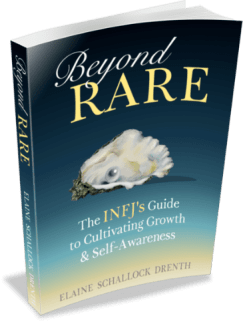
As I have discussed elsewhere, the Ti-Fe function pair (or if you prefer, the Fe-Ti function pair) confers a different approach to ideation than the Fi-Te function pair. In sharing the Ti-Fe function pair, FJs and TPs are alike in their sympathies toward Ti and Fe, while being slower to endorse Te or Fi approaches. FJs and TPs often prefer a more collective or common approach to people (Fe) in combination with a more subjective or individualized use of reason (Ti). TJs and FPs, by contrast, commonly opt for a collective and standardized approach to “things” and non-human systems (Te), along with a more individualized approach to understanding people (Fi).
In sharing the Fe-Ti function pair, INFJ-INTP relationships may find quicker resonance than if these types were paired with, say, INTJs or INFPs (Similarly, INTJ-INFP pairs have been reported to experience easy compatibility and mutual understanding.). More specifically, the Fe-Ti function pair, combined with a preference for Intuition, contributes to INFJs’ and INTPs’ propensity to function as armchair philosophers and psychologists. Devoid of strong concern for Te sorts of proof (e.g., scientifically-derived “facts”), INFJs and INTPs can enjoy each other’s speculations and theories about human nature without need for references or scientific citations. Moreover, in being drawn to Fe systems, such as typology, both types enjoy theoretically classifying people without a constant focus on individual variations or deviations (Fi).
Despite sharing the same T-F function pair, INTPs and INFJs differ in the S-N department, with INTPs utilizing the Ne-Si function pair and INFJs the Ni-Se function pair. INFJs can have a love-hate relationship with Extraverted Intuition (Ne). They may sometimes envy the ability of NPs to bring N consciousness into the outside world (i.e., to extravert it). They may admire NPs’ ingenuity, inventiveness, and entrepreneurial prowess. At the same time, INFJs can find too much Ne rambling to be distracting or irritating, since it can interfere with the natural functioning of their Ni. But since Ne is INTPs’ auxiliary function, it is usually attenuated compared to that of ENTPs or ENFPs. Moreover, when INTPs use their Ne to generate questions or pose problems, it can often help jumpstart INFJs’ Ni. This pattern of the INTP asking probing questions or seeking clarification, followed by the INFJ presenting her interpretation, can lead to fruitful and enjoyable discourse, as the broad and searching nature of Ne is complemented by the deeper and more intensive workings of Introverted Intuition (Ni).
Early in the relationship, INTPs may be largely skeptical of the workings and offspring of INFJs’ Ni. After all, INTPs trust their own Ti logic, but Ni seems a very different, even if intriguing, epistemology. Whereas Ti tends to think in binary terms (i.e., “it is either this or it is that”), Ni is more at home with paradox, such as the idea that quantum reality can be both a wave and a particle. Moreover, Ni can at times seem overly vague, abstract, mystical, or unempirical for the INTP’s Ti taste. For this reason, INFJs who have grown into their tertiary Ti and can connect their intuitions with existing concepts, frameworks, or taxonomies may find better luck with INTPs. Regardless, INTPs who remain patient and open to the idea that Ni can be a powerful tool for apprehending truth can eventually see and appreciate its unique value. In INFJs, INTPs can find a wellspring of psychological insight and perceptiveness, insight that he, in lacking strength of Ni, may be incapable of achieving on his own. The INTP loves the fact that INFJs can see things that he, despite much introspection, is largely blinded to. INTPs also love how such insights can serve to expedite their personal development as well as their understanding of human nature.
In short, the unique way that Ni perceives the world—a way that can be quite different from Ti and Ne—can serve as a consistent point of attraction for INTPs, opening up new depths of insight for them to explore. This is one reason why INTPs and INFJs can make wonderful companions. The INTP comes to realize the value of the INFJs’ originality and perceptiveness, while the INFJ loves the fact that the INTP wants to metaphysically walk with her. It can be an utter delight and great relief when INFJs, who are notorious for feeling misunderstood and unappreciated discover that one of the most logical and intellectual personality types finds her ideas and insights both valuable and interesting.
INTPs and INFJs also use different Sensing functions, with INTPs using Si and INFJs Se. As I’ve written elsewhere, the Sensing functions are often closely associated with lifestyle preferences. As Se types, INFJs tend to be more liberal when it comes to spending money on what they consider “high quality” goods or experiences. They often develop refined and cultured tastes, or what the INTP might deem “expensive” tastes. INTPs, in preferring Si over Se, tend to function at the opposite end of the spectrum, opting for more Spartan living conditions and sporting less refined tastes (with the possible exceptions of good coffee and/or beer:)). INTPs tend to be more interested in refining their logic and theories than they are their SF tastes. These differences can certainly serve points of contention, as money-related concerns often do in relationships, but are typically not deal breakers should the INTP and INFJ align in other ways.
Learn more about INFJs & INTPs in our books:
Related Posts:
INFJ-INTP Relationships: Part III: Challenges
INFJ-INTP Relationships: Part I


